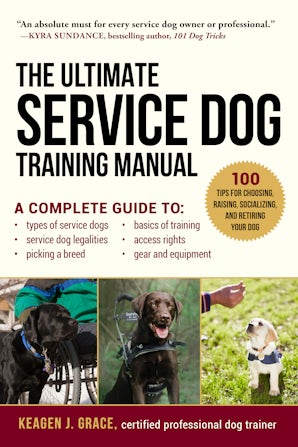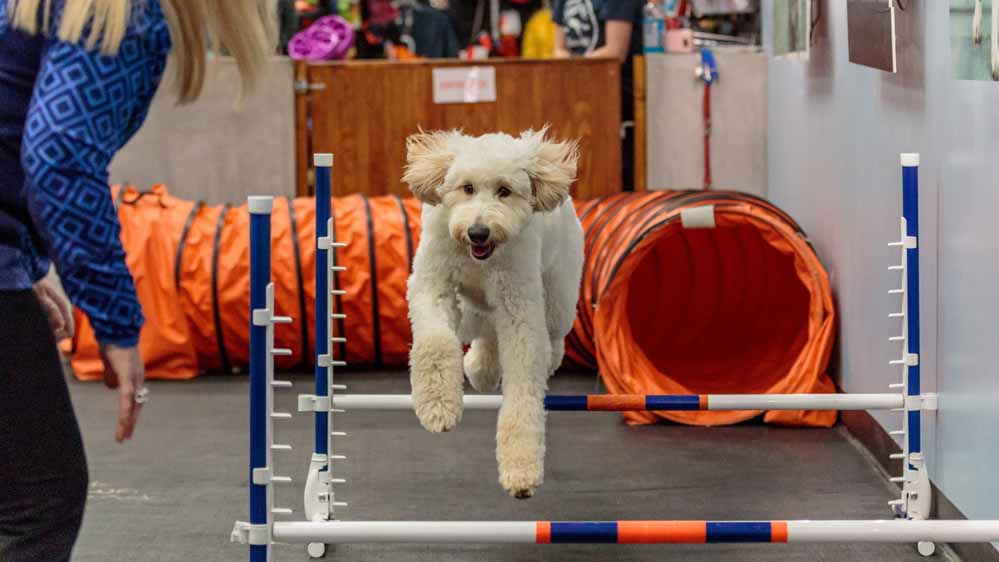Reliable Dog Training For Dogs: Tips for a Well-Behaved Buddy
Reliable Dog Training For Dogs: Tips for a Well-Behaved Buddy
Blog Article
Leading Pet Training Methods for Every Stage of Your Pet's Life
Efficient pet dog training is important at every phase of a dog's life, as each phase provides special challenges and chances for growth. It is crucial to identify that training must evolve alongside a dog's growth, ensuring that approaches continue to be pertinent and efficient.
Puppy Educating Basics
Puppy training basics prepared for a mannerly adult pet dog and entail a number of key components that need to not be forgotten. The preliminary phase of training focuses on developing a solid bond between the puppy and its proprietor, which is important for efficient communication. Socializing is paramount; subjecting pups to various atmospheres, individuals, and various other pets assists them establish confidence and flexibility, reducing the probability of behavior issues later on in life.
Fundamental commands, such as rest, stay, and come, form the structure of obedience training. Using positive support methods, such as treats and appreciation, urges wanted habits and fosters a favorable understanding experience. Uniformity in commands and training sessions is crucial, as puppies grow on regular and structure.
Furthermore, residence training is an essential element of puppy training. Developing a regular routine for bathroom breaks and making use of assigned locations can help lessen accidents and advertise excellent practices. On the whole, an all-around strategy to puppy training, incorporating socialization, residence, and obedience training, establishes the phase for a well-adjusted grown-up pet, guaranteeing an unified partnership in between the family pet and its proprietor.
Teenage Habits Monitoring
As pups grow right into adolescents, their actions can alter considerably, often offering brand-new difficulties for owners. This developmental phase, normally happening between 6 months and two years, is marked by increased energy levels, curiosity, and a blossoming feeling of independence. Comprehending these changes is essential for efficient behavior management.
Adolescents may show rebellious propensities, such as ignoring commands they previously mastered or involving in damaging habits. Consistency in training continues to be critical; reinforcing found out habits with positive support can assist counteract these challenges. Short, interesting training sessions are important to keep their interest and focus.

In addition, establishing an organized routine can dramatically enhance a teen pet dog's complacency. Normal workout is crucial to direct their energy favorably, lowering the probability of undesirable actions. By using these techniques, proprietors can effectively navigate the intricacies of adolescent actions, cultivating a well-adjusted, satisfied canine friend.
Grown-up Pet Dog Obedience Methods

Favorable reinforcement remains a vital technique; rewarding etiquette with treats, appreciation, or play motivates compliance. Uniformity is vital; the very same commands and benefits must be utilized by all relative to prevent complication.
Incorporating training right into day-to-day regimens can also work. As an example, method commands throughout strolls or dish times, allowing training to blend flawlessly into everyday life. Taking part in organized activities, like agility programs or obedience courses, can additionally boost a pet's abilities while giving beneficial socializing possibilities.
It is vital to identify that grown-up pet dogs might likewise display stubbornness or complacency. Changing training techniques to maintain their rate of interest, such as differing benefits or presenting new commands, can help suffer inspiration. On the whole, an ongoing commitment to obedience training will cultivate a mannerly and Click Here well balanced grown-up dog.
Senior Dog Adjustment Methods
Identifying the special requirements of senior pet dogs is crucial for ensuring their comfort and well-being. As pets age, they may experience a decrease in flexibility, vision, and cognitive feature, requiring tailored adaptation methods.
First, think about modifying the living atmosphere. Make certain that the home is risk-free and obtainable; eliminate obstacles and provide non-slip surface areas to stop falls. Additionally, consider utilizing actions or ramps to help them access their favorite areas.
Second of all, workout ought to be gotten used to make up lowered endurance and joint health (Dog Training For Dogs). Involve in shorter, a lot more frequent walks, and include gentle tasks like swimming, which can be useful for arthritic joints
Moreover, mental excitement remains important. Usage easy challenge playthings or take part in scent job to keep their minds sharp, while page preventing overwhelming tasks that might annoy them.
Finally, normal vet check-ups are necessary to monitor health adjustments and change treatment routines accordingly. By applying these adaptation methods, you can enhance the high quality of life for your elderly dog, ensuring they age with dignity and pleasantly.
Lifelong Knowing and Enrichment
While pet dogs of all ages take advantage of learning and psychological excitement, long-lasting enrichment is specifically vital for keeping cognitive health and wellness and psychological health in both elderly and more youthful pet dogs. Involving activities not only improve a canine's high quality of life but also strengthen the bond between the dog and its owner.
Enrichment can take various forms, including interactive playthings, problem feeders, and scent work, which stimulate a pet dog's detects and motivate analytic. Regular training sessions, integrating new commands or methods, maintains their minds sharp and promotes a feeling of achievement. Socialization with various other pet dogs and people is just as essential, as it assists stop behavioral issues and fosters adaptability.
In addition, including exercise into a dog's regimen is vital for overall wellness. Activities like dexterity training, fetch, or long strolls give both physical and psychological stimulation, guaranteeing pets stay happy and involved.
Lastly, take into consideration varying the setting by introducing brand-new locations for playdates or walks. This modification can reignite a dog's interest and enthusiasm for expedition. Long-lasting discovering and enrichment not only add to a meeting life but also promote an unified connection with your canine friend.
Verdict
Effective pet dog training methods develop throughout a dog's life, resolving the one-of-a-kind needs of each developing stage. From developing fundamental skills in puppies to taking care of adolescent actions, reinforcing obedience in adults, and adjusting methods for senior citizens, a detailed method makes certain optimum interaction and behavior. Emphasizing routine mental excitement, socializing, and physical workout cultivates a well balanced and fulfilling life for canines. Eventually, constant application of these methods adds to an unified partnership in between dogs and their human companions.
Effective canine training is necessary at every phase of a pet top article dog's life, as each stage offers unique challenges and chances for development.Puppy training fundamentals lay the groundwork for a well-behaved grown-up pet and include a number of essential components that need to not be overlooked. On the whole, a well-rounded strategy to puppy training, integrating residence, obedience, and socializing training, establishes the phase for a well-adjusted grown-up canine, ensuring an unified partnership in between the family pet and its proprietor.
Many canine owners may discover that adult pets, while normally more steady in behavior than their teen counterparts, still need consistent training to keep obedience and good manners.Reliable canine training strategies develop throughout a pet's life, addressing the one-of-a-kind requirements of each developing stage.
Report this page